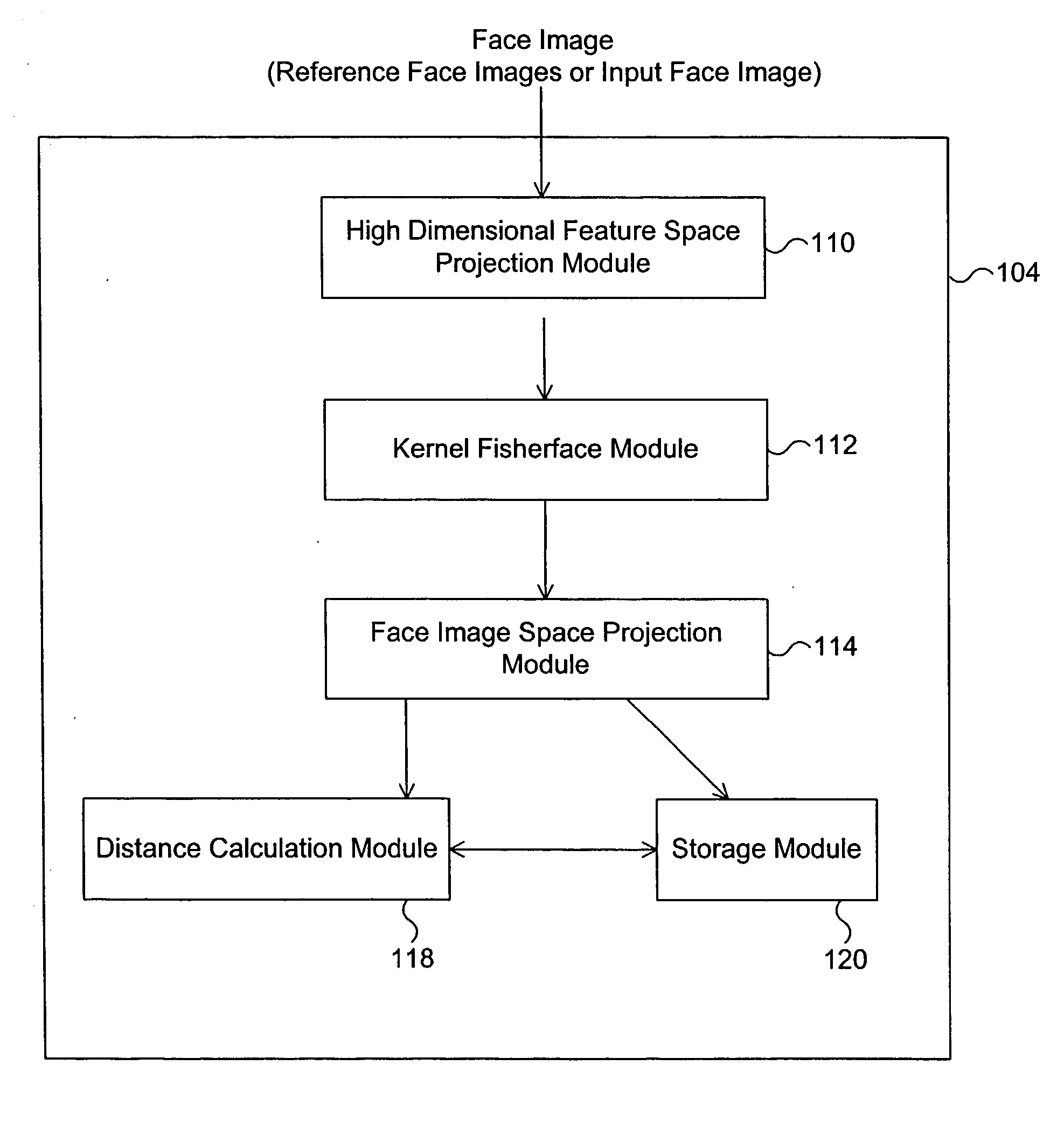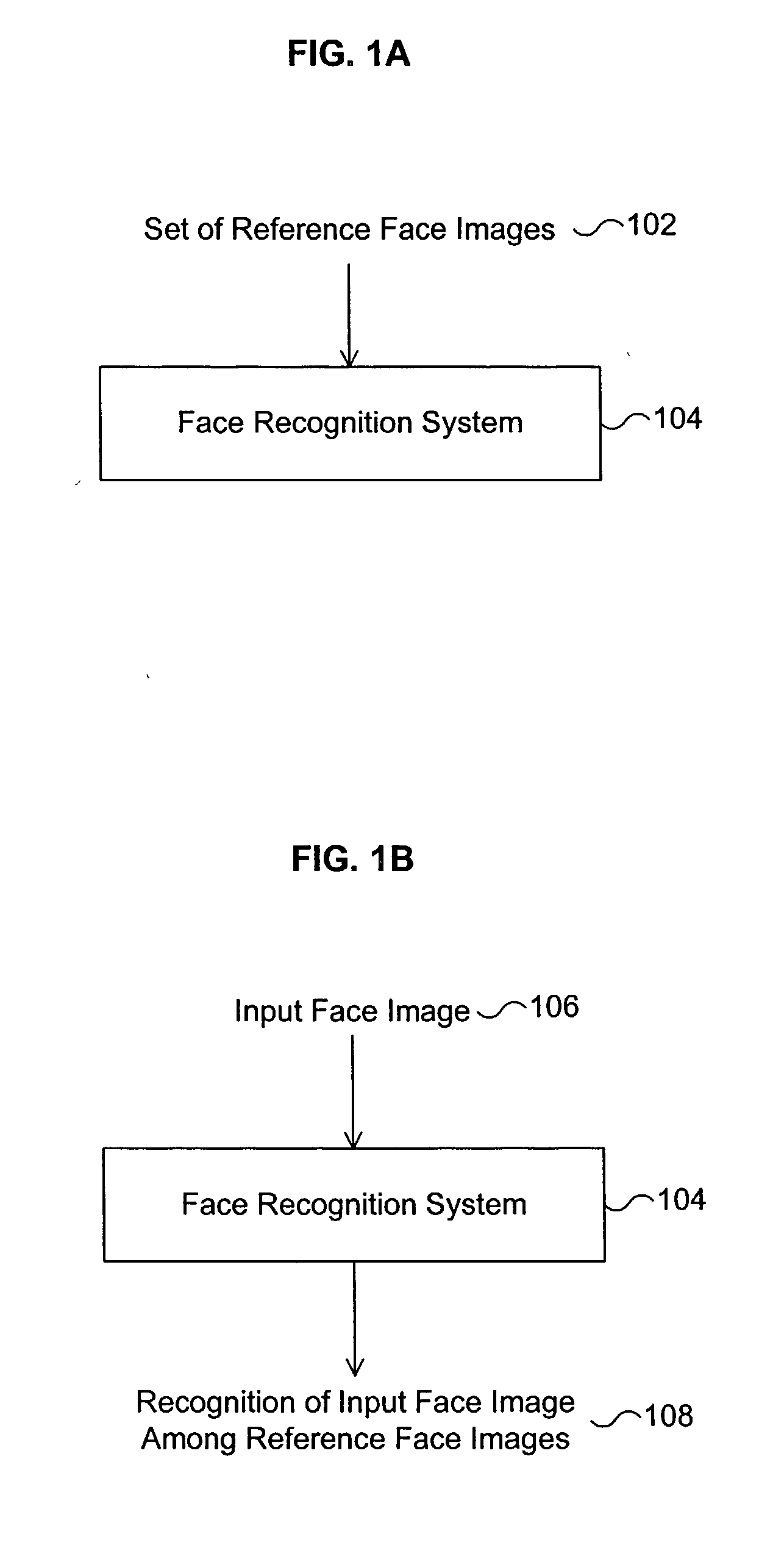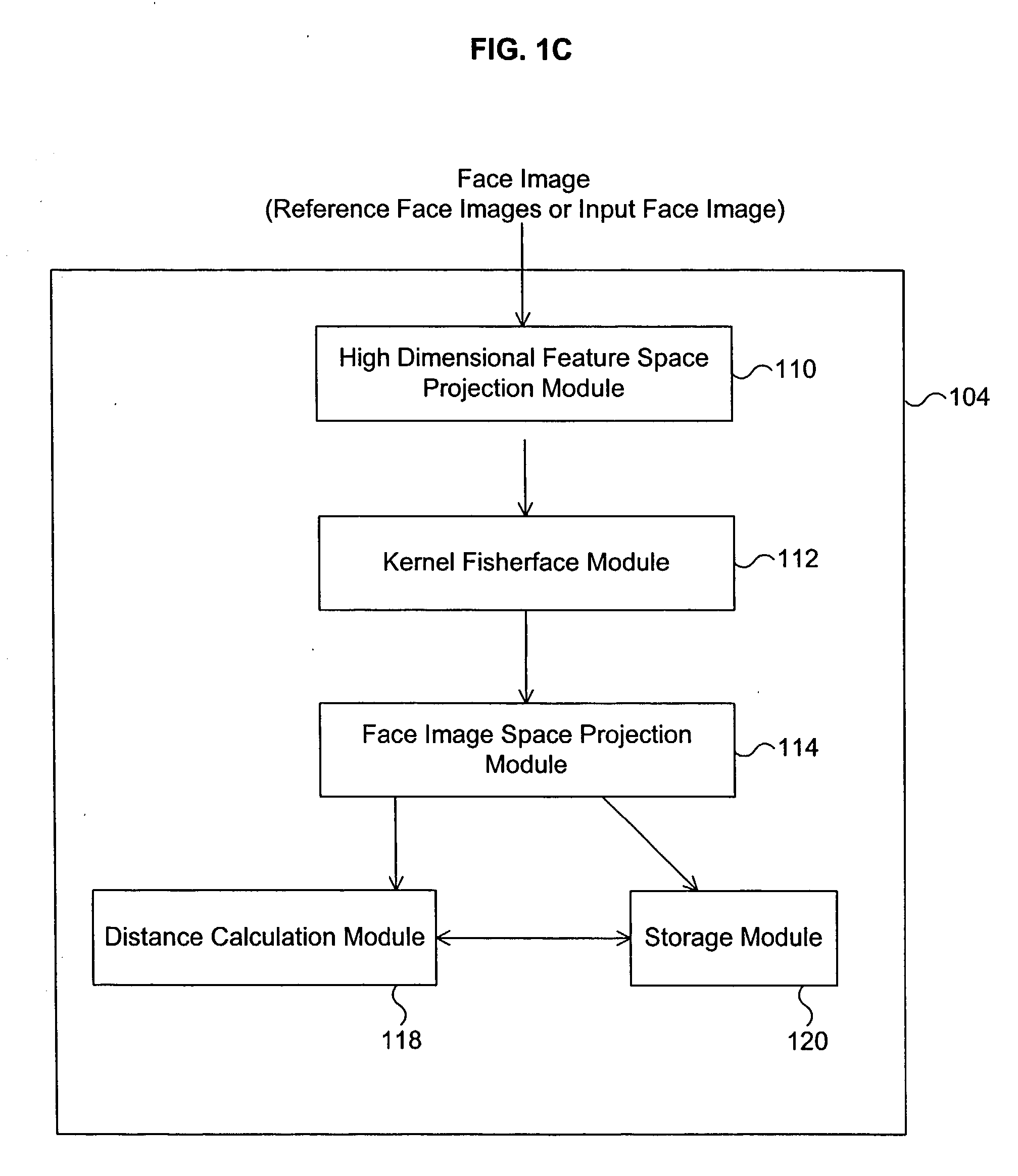Face recognition using kernel fisherfaces
a technology of face recognition and kernel, applied in the field of face recognition systems, can solve the problems of inability to accurately identify the face image, previous face recognition systems that did not work well, and the lower dimensional representation of the face image has no information, so as to achieve the effect of not introducing a huge computational burden
- Summary
- Abstract
- Description
- Claims
- Application Information
AI Technical Summary
Benefits of technology
Problems solved by technology
Method used
Image
Examples
Embodiment Construction
[0022] FIG. 1A is a diagram illustrating that the face recognition system the training of the face recognition system using a set of reference face images according to one embodiment of the present invention. Referring to FIG. 1A, a set of reference face images 102 is input to the face recognition system 104. The reference face images 102 are the face images to which an input face image will be compared later for face recognition. The face recognition system 104 analyzes and is trained with the image data of the reference face images 102 in a manner that is explained in detail below so that the face recognition system 104 can later determine that an input face image resembles one of the reference face images 102.
[0023] FIG. 1B is a diagram illustrating that the face recognition system recognizes an input face image as resembling a particular face image among the set of reference face images according to one embodiment of the present invention. The face recognition system 104 has bee...
PUM
 Login to View More
Login to View More Abstract
Description
Claims
Application Information
 Login to View More
Login to View More - R&D
- Intellectual Property
- Life Sciences
- Materials
- Tech Scout
- Unparalleled Data Quality
- Higher Quality Content
- 60% Fewer Hallucinations
Browse by: Latest US Patents, China's latest patents, Technical Efficacy Thesaurus, Application Domain, Technology Topic, Popular Technical Reports.
© 2025 PatSnap. All rights reserved.Legal|Privacy policy|Modern Slavery Act Transparency Statement|Sitemap|About US| Contact US: help@patsnap.com



